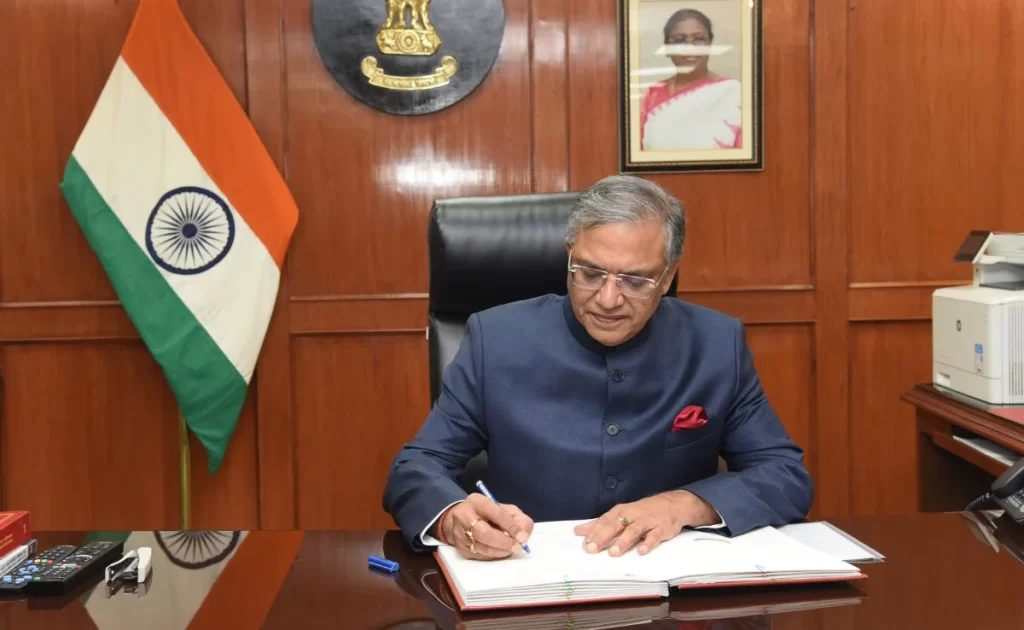Vanshika Bhalla
Gyanesh Kumar assumes office as the 26th Chief Election Commissioner (CEC) of India on February 19, 2025, coinciding with a Supreme Court hearing on a petition challenging the law under which he was appointed. The three-member selection panel was led by Prime Minister Narendra Modi.
A 1988 batch IAS officer from the Kerala cadre, Kumar retired as Secretary in the Ministry of Cooperation on January 31, 2024. He played key roles in the establishment of the Shri Ram Janmabhoomi Theertha Kshetra Trust and the administration of Jammu and Kashmir post-Article 370 revocation. He was appointed as an Election Commissioner in March 2024 and will serve as CEC until January 2029.
His appointment falls under the Chief Election Commissioner and Other Election Commissioners (Appointment, Conditions of Service and Term of Office) Act, 2023. Previously, Election Commissioners were appointed by the President on government recommendations. However, a 2023 Supreme Court ruling mandated a selection panel including the Prime Minister, Leader of Opposition, and Chief Justice of India (CJI). Parliament later replaced the CJI with a Union Minister, a change now under judicial review.
As CEC, Kumar will oversee major elections, including Bihar Assembly elections in 2025 and Assembly elections in multiple states in 2026, followed by the Presidential and Vice-Presidential elections in 2027.
His appointment faced opposition, with the Congress urging a delay until the Supreme Court’s ruling. Rahul Gandhi, a selection panel member, submitted a dissent note.
Outgoing CEC Rajiv Kumar, who oversaw the 2024 Lok Sabha elections, stepped down, with his tenure marked by opposition allegations of bias. In his farewell, he remarked, “I observed a pattern in the timing of certain narratives.” He added, “Live reporting of court hearings at critical junctures sometimes fuels distrust. Such proceedings should be scheduled carefully to avoid disrupting the electoral process.”
With legal scrutiny ongoing, Gyanesh Kumar’s tenure begins under heightened judicial and political attention.
Instagram: Click here.
LinkedIn: Click here.
For Collaboration and Business: info.desikaanoon@gmail.com

